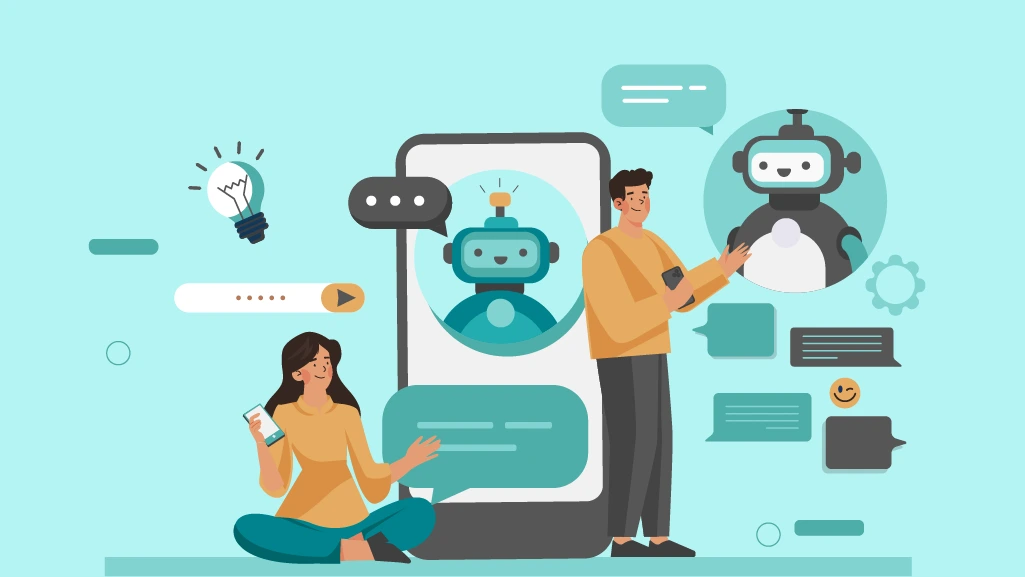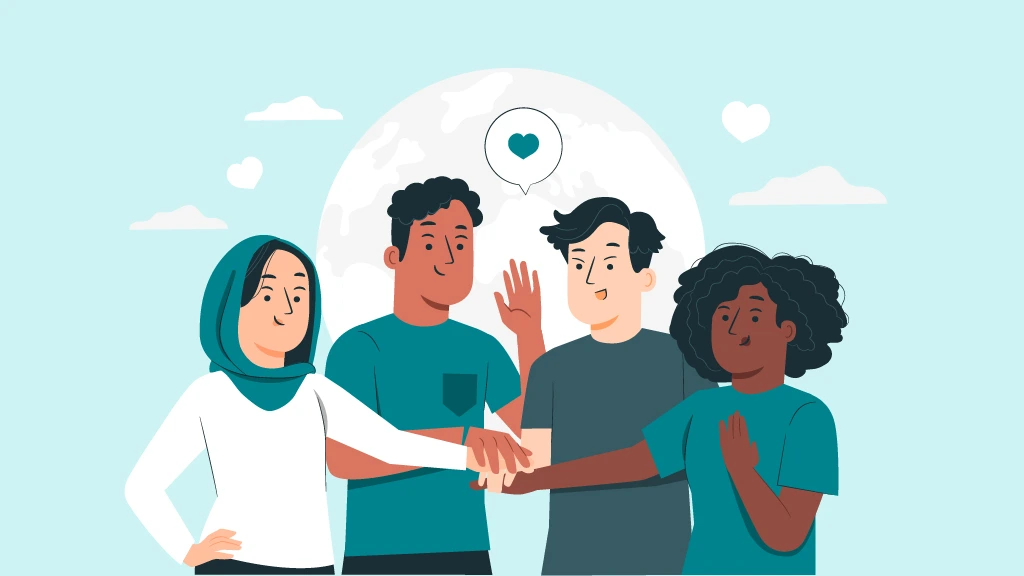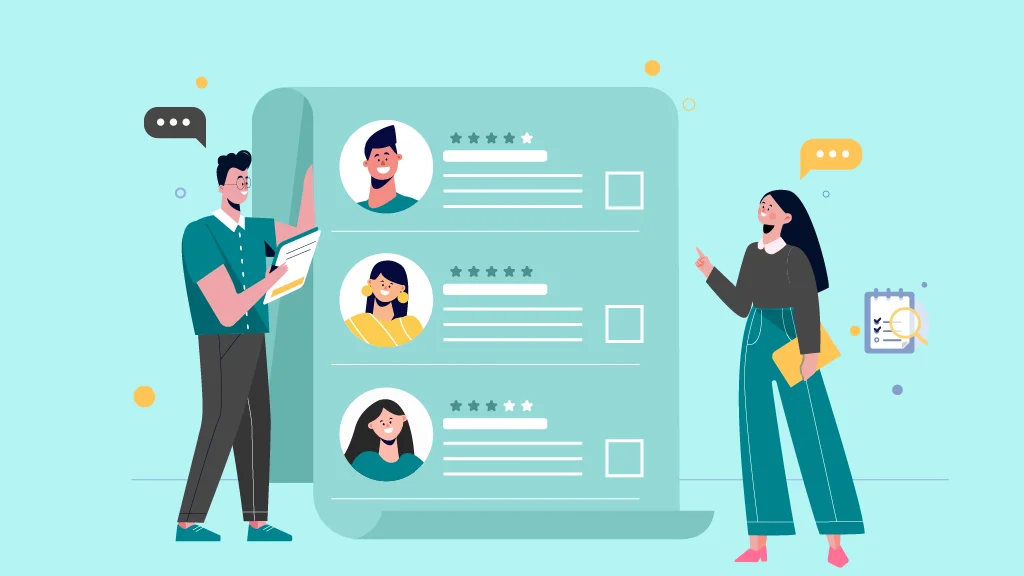7 Ways AI-Engagement Combats Internalized Oppression for a Truly Equitable Workplace

Team AdvantageClub.ai
August 11, 2025

Internalized oppression may not be too apparent, but many employees carry internal doubts rooted in years of societal conditioning. This interpersonal racism and years of subtle bias can make even the most capable employees doubt their worth. And here’s where AI can help as a tool for uncovering stereotypes in the workplace, elevating overlooked voices, and building systems that recognize people for who they really are, not who they’re assumed to be.
What is Internalized Oppression at the Workplace?
Internalized oppression is a quiet, often invisible force that weighs heavily on individuals from marginalized groups. Employees begin to internalize negative signals about themselves at work, such as thinking they are less competent, less worthy, or don’t quite fit in. These ideas become ingrained over time, affecting not just how individuals view themselves but also the culture of the organization in which they work. It is important to understand what roles do stereotypes play in the workplace.
Key signs include:
- Self-Doubt and Imposter Syndrome: High-performing employees second-guess their abilities or feel like they don’t deserve their roles.
- Hesitation to Speak Up or Advocate: They hold back in meetings or avoid negotiating, thinking their voice doesn’t carry weight.
- Over-Compensating or Excessive Work: A relentless drive to “prove” their worth, often driven by fear of being judged unfairly.
- Reluctance to Accept Recognition or Promotion: Downplaying their achievements or feeling they haven't truly earned success.
- Internalizing Negative Stereotypes: Toxic narratives that make individuals question their value, their potential, or whether they truly belong.
- Heightened Stress and Burnout: The emotional weight of these pressures can lead to exhaustion, both mentally and physically.
Roots of Internalized Oppression:
- Interpersonal Racism: Not just blatant acts, but the everyday slights and subtle dismissals that wear people down.
- Microaggressions: Brief, often unconscious comments or gestures that demean marginalized individuals
- Unconscious Biases: Hidden prejudices that seep into decisions around hiring, promotion, and collaboration.
- Workplace Stereotypes: Preconceived notions about specific groups (e.g., less assertive or less skilled) that get internalized over time.
Smart Engagement Platforms as an Ally: Building an Equitable Culture
Training sessions and policy updates are insufficient in the pursuit of true equality in the organization. We require technologies that actively support the human experience, particularly the internal struggles that employees face in silence. Today’s engagement platforms encompass more than simply human resources technology. They turn into allies who help break down internalized oppression and nurture an organizational culture and employee engagement where every voice truly matters.
1. Real-time Recognition: Empowering Diverse Voices and Achievements
How it helps:
- Sends timely nudges to recognize acts of innovation, collaboration, or going above and beyond, across all teams and demographics.
- Reviews recognition trends to catch potential gaps, ensuring credit is shared fairly and no one’s efforts are overlooked.
- Enables peer-to-peer recognition, helping appreciation come from all directions, not just top-down.
Impact on Internalized Oppression:
- Replaces self-doubt with regular, visible affirmations of value and impact.
- Challenges stereotypes in the workplace by showing that all kinds of contributions deserve attention.
- Builds a stronger sense of belonging—helping people feel like they truly fit, not just on the org chart, but in the culture.
2. Strategic Rewards Platforms: Valuing Inclusive Contributions
How it helps:
- Rewards aren't just tied to output, they can be tied to inclusive behaviors like mentoring, speaking up, or bridging team divides.
- Tracks and highlights meaningful efforts that often get missed due to unconscious bias.
- Makes rewards automatic and data-driven, taking subjectivity out of the equation.
Impact on Internalized Oppression:
- Directly incentivizes actions that challenge and break down both external and internalized biases, promoting a culture of active inclusivity.
- Sends a clear message that diverse perspectives and contributions matter and that they count.
- Helps individuals see the worth of their unique contributions, building authentic confidence.
3. Pulse Surveys and Polls: Uncovering Unspoken Narratives and Hidden Biases
How it helps:
- Offers safe, anonymous channels where employees can be honest without fear of repercussion.
- The platform's analytical capabilities sort through feedback to spot patterns, themes, and silent struggles across teams.
- Enables rapid, iterative feedback loops, allowing HR to gauge the impact of new initiatives and adapt strategies quickly.
Impact on Internalized Oppression:
- Provides a psychologically safe space for employees to voice concerns that might otherwise remain suppressed, addressing the silence often associated with internalized struggles.
- Reveals where internalized biases might be showing up in culture, language, or systems.
- Shows employees that their feedback matters, and that sharing can spark meaningful change.
4. Mood-o-Meter: Proactive Support for Employee Well-being
How it helps:
- Gives employees a quick, easy tool to check in on their emotional state, without identifying individuals.
- Shows HR and leaders aggregated, anonymous insights into overall team or department sentiment trends, highlighting potential areas of stress or concern.
- Can be configured to subtly suggest relevant resources (e.g., wellness tips, mental health support lines) based on observed trends or personal inputs.
Impact on Internalized Oppression:
- Flags emotional fatigue linked to battling internalized beliefs and societal pressures.
- Enables proactive support and intervention strategies for care before someone hits a breaking point.
- Promotes self-awareness and emotional support, which are key to building resilience.
5. Holistic Wellness Programs: Nurturing Resilience and Self-Worth
How it helps:
- Suggests relevant wellness programs, mindfulness, financial wellness, mental health, and more, based on real needs.
- Connects employees with relevant resources based on their expressed needs or insights gleaned from surveys, ensuring tailored support.
- Monitors overall participation trends to understand what’s helping and where gaps remain.
Impact on Internalized Oppression:
- Equips employees with tools to manage the stress and self-doubt that come with carrying invisible burdens.
- Helps rebuild mental resilience, emotional intelligence, and self-esteem, leading to a healthier culture of employee empowerment.
- Reinforces a culture of care that recognizes each individual’s whole experience.
6. Inclusive Communities: Breaking Down Silos and Building Belonging
How it helps:
- Supports interest-based groups and affinity networks that employees can opt into.
- Suggests communities that align with interests or identities, making it easier to find a connection.
- Encourages dialogue and shared learning through moderated, safe spaces.
Impact on Internalized Oppression:
- Reduces feelings of isolation with a strong support network and by showing people they’re not alone in what they’re feeling or facing.
- Builds peer support and shared understanding—powerful antidotes to self-doubt.
- Helps employees see themselves reflected in the workplace, building a profound sense of belonging and psychological safety.
7. Gamified Sales Incentives (and Beyond): Leveling the Playing Field
How it helps:
- Sets clear, measurable goals for sales and other targets, ensuring clarity and fairness.
- Automates the tracking and celebration of achievements, ensuring success is based purely on individual merit and quantifiable performance data.
- Ensures recognition is based on performance, not perception.
Impact on Internalized Oppression:
- Builds immense confidence by providing clear, unbiased pathways to success, where effort and skill directly translate to recognized achievement.
- Challenges self-limiting beliefs by objectively demonstrating that individual capabilities and contributions are valued and rewarded fairly.
- Creates a fair environment where individuals feel empowered to compete, innovate, and excel based on their true capabilities, rather than preconceived notions or biases.
Smart Platforms – A Catalyst for Genuine Workplace Equity
Workplace equity isn’t merely a policy; it’s something we build at the workplace through everyday actions and the tools we choose to support our people. Modern engagement platforms play a hands-on role in shaping a culture where recognition is timely, feedback is safe, rewards are meaningful, and well-being is supported without bias or barriers.





